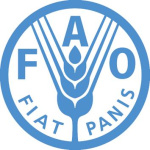- Industry: Agriculture
- Number of terms: 87409
- Number of blossaries: 0
- Company Profile:
Established in October 1945 with the objective of eliminating hunger and improving nutrition and standards of living by increasing agricultural productivity, FAO coordinates the efforts of governments and technical agencies in programs for developing agriculture, forestry, fisheries, and land and ...
An organism that is genetically different from the wild type organism. a.k.a. mutant.
Industry:Biotechnology
An organism which grows at a higher temperature than most other organisms. In general, a wide range of bacteria, fungi and simple plants and animals can grow at temperature up to 50°C; thermophiles are considered to be organisms which can grow at above 50°C. They can be classified according to their optimal growth temperature, into simple thermophiles (50-65°C), thermophiles (65-85°C), and extreme thermophiles (>85°C). Thermophiles and extreme thermophiles are usually found growing in very hot places, such as hot springs and geysers, smoker vents on the sea floor, and domestic hot water pipes.
Industry:Biotechnology
An organism which is affected by an interaction for which it was not the intended recipient.
Industry:Biotechnology
An organism whose cells contain four haploid (4<i>x</i>) sets of chromosomes.
Industry:Biotechnology
An organism whose phenotype (but not genotype) has been changed by the environment to resemble the phenotype usually associated with a mutant organism.
Industry:Biotechnology
An organism with four genomes derived from hybridization of different species. Usually, in forms that become established, two of the four genomes are from one species and two are from another species.
Industry:Biotechnology
An organized embryonic structure morphologically similar to a zygotic embryo but initiated from somatic (non-zygotic) cells. Under <i>in vitro</i> conditions, somatic embryos go through developmental processes similar to embryos of zygotic origin.
Industry:Biotechnology
An organized embryonic structure morphologically similar to a zygotic embryo but initiated from somatic (non-zygotic) cells. Under <i>in vitro</i> conditions, somatic embryos go through developmental processes similar to embryos of zygotic origin.
Industry:Biotechnology
